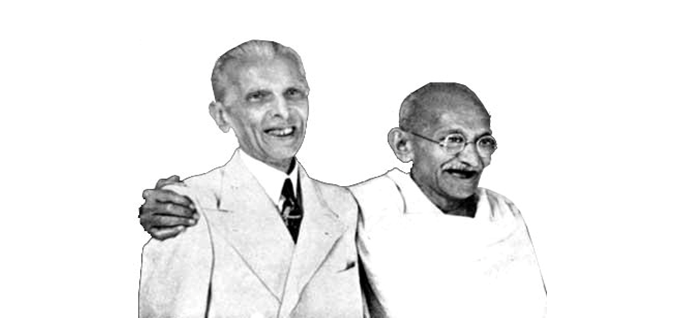How Can I Find Someone Like You?
Every year on August 14, the nation passionately celebrates Pakistan’s Independence Day with zeal, respect, and devotion. The media is flooded with extensive information about this day, and various events are organized to pay tribute to the unparalleled, brave, and impeccable character of Quaid-e-Azam, who achieved the historic and monumental feat of establishing Pakistan. According to a global survey conducted by the BBC, Quaid-e-Azam is recognized as the greatest leader of South Asia. His greatness has been acknowledged by just and fair circles worldwide, including reasonable Hindu writers and intellectuals who praised his courage, steadfastness, foresight, democratic values, and honesty. Some Hindu leaders even remarked that if Congress had a leader like Quaid-e-Azam, the partition of the subcontinent might have been avoided.
Quaid-e-Azam demanded a separate state when efforts to unite the two nations of the subcontinent and ensure the political and economic rights of the Muslim minority according to democratic principles failed. The extremist, narrow-minded, and Muslim-hostile Congress leadership proved that they were unwilling to tolerate the presence of the previously ruling Muslim community in a united India and keep them with dignity and respect after independence. Without firing a single shot, Quaid-e-Azam achieved an independent and sovereign state through determined leadership and the democratic struggle of the Muslims of the subcontinent. He repeatedly assured that the new state would be a fortress of Islam, reviving its golden principles, functioning under a democratic parliamentary system, and becoming a true Islamic welfare state in line with modern requirements.
Iqbal envisioned a free Muslim state under the two-nation theory, a vision for which Quaid-e-Azam fought valiantly. Quaid-e-Azam repeatedly clarified that the state would address the issues of Muslim livelihood and employment. At one point, he openly stated that he had no interest in a Pakistan that would protect the rights of landlords, feudal lords, and capitalists. During his lifetime, Quaid-e-Azam favoured an Islamic democratic parliamentary system for Pakistan and clearly stated that the constitution would be framed according to Islamic democratic principles. In the new state, minorities would have complete rights granted by Islam, and the military’s role would be as a subordinate institution to the elected democratic government.
It is unfortunate that even during Quaid-e-Azam’s lifetime, the English Commander-in-Chief of the military disobeyed orders and refused to send troops to Pakistan’s vital region of Kashmir, as directed by Quaid-e-Azam. In contrast, the Indian Commander-in-Chief fully complied with Jawaharlal Nehru’s orders and seized Srinagar Airport, halting the advancing Mujahideen.
Only ten years after Quaid-e-Azam’s death, General Ayub Khan dismantled the democratic system and introduced military rule in the country, a principle that persists in various forms today. Currently, Zardari uses all the powers of a military dictator under the guise of democracy, ruling the nation without wearing a military uniform but with all the authority of a dictator. This is why the country could neither become a modern democratic parliamentary state nor an Islamic welfare society according to the teachings of Iqbal and Quaid-e-Azam. Instead, due to military rule and the flawed strategies of our political leaders, the majority part of Pakistan was separated, and the remaining country faces linguistic, ethnic, sectarian, provincial prejudices, and American interference, posing constant threats to national security.
Today, it is essential to educate the younger generation about the challenging circumstances under which Pakistan was achieved. This can be understood from Quaid-e-Azam’s letter to Gandhi on September 17, 1944, during the final days of their meetings. Quaid-e-Azam wrote, “You have already rejected the fundamental principles of the Lahore Resolution. You do not accept that Muslims are a nation. You do not acknowledge that Muslims have the right to self-determination and can exercise it. You do not agree that Pakistan comprises two regions and six provinces… After corresponding and debating with you, I can say that the call for the division of India into Pakistan and Hindustan is only on your lips, not from your heart.” Gandhi’s attitude doomed the talks to failure.
On September 29, 1944, Wavell wrote in his diary, “I had expected a better outcome from these discussions. This has severely damaged Gandhi’s reputation as a leader. Jinnah’s task was easy; he only had to keep telling Gandhi that he was talking nonsense, and it was true. However, Jinnah did this in an offensive manner… I believe that while this might have increased Jinnah’s respect among his followers, it did not enhance his reputation among reasonable people.” According to Wavell and other British rulers, a reasonable person is someone who thinks and acts according to their mindset. Their dictionary of reasonableness has no room for independent thought and action!
After the failure of negotiations, on October 14, 1944, Quaid-e-Azam clarified his perspective in a press conference. A journalist asked him if there was any possibility of another meeting with Gandhi in the near future. Quaid-e-Azam humorously replied, “Mr. Gandhi says it depends on the voice of his heart. Since I do not have access there, I cannot say anything.” The truth is, Gandhi never intended to settle the matters. During the discussions with Quaid-e-Azam, Gandhi had told Rajagopalachari that his real objective was to get Jinnah to admit that the idea of Pakistan was fundamentally flawed and absurd. It seems Gandhi underestimated Quaid-e-Azam’s capabilities, which rendered all his tactics ineffective.
In 1945, Quaid-e-Azam foresaw that the British government would have to conduct elections in India. Thus, he began his campaign, stating in a statement from Bombay on August 16, 1945, that Mr. Gandhi, whenever he deems fit, speaks in a personal capacity and is not a representative of anyone. He is not even a member of the Congress by four annas. He annuls himself and consults his inner voice, but when needed, he becomes the supreme dictator of Congress and considers himself the representative of all India. Mr. Gandhi is an enigma… there is so much venom and bitterness in Congress against Muslims and the Muslim League that they can stoop to any level to undermine them and abandon all principles.
On October 10, 1945, at a public meeting organized by the Muslim League in Quetta, he depicted Gandhi’s politics, saying, “Leadership involves sitting down like a goat during a police baton charge, then going to jail, complaining of weight loss, and thus securing release. I do not believe in this type of struggle. When the test comes, I will be the first to take a bullet in my chest.” On November 21, 1945, while addressing a gathering in Peshawar, he said that Congress would have to accept the demand for Pakistan or crush the Muslims, but now no power could crush the ten crore Muslims. On November 24, in the same city, he said, “As long as I am alive, not a drop of Muslim blood will be shed in vain. I will never let Muslims become slaves of Hindus… neither the British nor the Hindus are friends of Muslims. It is clear in our minds that we have to fight both of them… we will fight their combined power and, God willing, we will succeed.”
On December 3, 1945, when Gandhi met Bengal’s governor “Casey,” Gandhi told him, “Jinnah is an ambitious man, and his thinking is to establish a connection between Muslims in India, the Middle East, and other countries. I do not think Jinnah can come out of his dreams.” In fact, Gandhi was already sensing the outcomes of the elections and their potential impacts, which is why he was worried about Islamic solidarity before the establishment of Pakistan. It is noteworthy that this is the same Gandhi who, to establish his leadership among Muslims, led the Khilafat Movement. Now, he was using all his arrows from his quiver to further poison the mind of the Pakistan-opposing governor of Bengal.
On March 23, 1946, the Cabinet Mission came to India. On April 3, 1946, Gandhi had a conversation with the mission. He was wearing only a dhoti and looked very healthy. Gandhi told the mission to let Jinnah form the first interim government. The ministers should be from the elected representatives of the country. Jinnah could choose whomever he wanted, but the ministers would have to get a vote of confidence from their respective assemblies. If Jinnah refused to form the government, then the same offer should be made to Congress. Notice Gandhi’s tactic: Prime Minister Jinnah would only be able to select those individuals who could gain the confidence of their assemblies. Due to their population, the Hindu majority in the assemblies of Muslim minority provinces was significant. Despite immense popularity among the masses, the Muslim League did not have a clear majority in the assemblies of Muslim majority provinces because the seats were not allocated according to the population. Thus, the League would be forced to appoint almost all Congress Hindus or non-League Muslims as ministers. Why would Quaid-e-Azam accept such an offer, and consequently, the government would automatically go to Congress? This was Gandhi’s offer to Quaid-e-Azam.
برو ایں دام بر مرغ دگرنہ
کہ عنقا را بلند است آشیانہ
Place this trap for another bird,
For the falcon nests high in the sky
Pathik Lawrence told Gandhi that such a proposal would result in most of Jinnah’s ministers being non-League members. Gandhi responded that there was no way to avoid this, and who would advance such a matter? Lord Mountbatten was sworn in as the last Viceroy of a united India on 24 March and immediately began meeting with political leaders. Gandhi met with Lord Mountbatten every day from 31 March to 14 April 1947. During the meeting on 1 April, Gandhi suggested that Mr. Jinnah be made the Prime Minister of a united India… and as long as he worked in the interest of the Indian people, the Congress would cooperate with him sincerely… The decision on whether he was working in the public interest or not would be solely made by Lord Mountbatten. If Jinnah did not agree to this proposal, then the same offer should be made to the Congress. Mountbatten admitted that he was utterly taken aback by Gandhi’s proposal. He asked Gandhi what Mr. Jinnah’s reaction might be. Gandhi replied, “If you tell him that this proposal comes from Gandhi, Jinnah will say ‘Cunning Gandhi’.” Mountbatten, amused, asked, “That would probably be true, wouldn’t it?” To this, Gandhi enthusiastically responded, “No, no, I am making this proposal with utmost sincerity.”
Before speaking to Jinnah, Mountbatten shared this with Nehru on the same day. Hearing that their Mahatma (Gandhi) was offering the Prime Ministership to the Quaid-e-Azam, Nehru was stunned. Nehru told Mountbatten, “Last year, Gandhi made a similar proposal to the Cabinet Mission, but this is an unrealistic solution to the problem. Gandhi should stay in Delhi for a few more days as he has been out of touch with the centre for four months and is rapidly becoming unaware of the matters.” After hearing Nehru’s opinion, Mountbatten deemed it inappropriate to discuss this with Quaid-e-Azam. Even if Mountbatten had spoken to Jinnah, it wouldn’t have made a difference because Mountbatten knew well that Jinnah would never jeopardize the nation for his personal gains and would outrightly reject such an offer without hesitation.
These events clearly show that Quaid-e-Azam well understood Gandhi’s intentions and methods and, by the grace of Allah, responded to them appropriately in every respect.
Praise be to my Lord, who created Pakistan on a blessed night for a great purpose.
آئینہ کیوں نہ دوں کہ تماشا کہیں جسے
ایسا کہاں سے لاؤں کہ تجھ سا کہیں جسے
How can I provide a mirror for someone who could be an extraordinary spectacle?
Where can I find someone like you?






